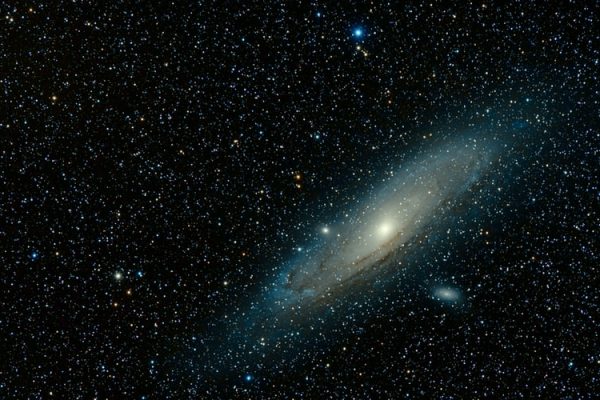Remember: The environmental impacts of wealth inequality are that it is often the poorest who face a disproportionate impact on their quality of life – and this causes devastating results.
Remember: The environmental impacts of wealth inequality are that it is often the poorest who face a disproportionate impact on their quality of life – and this causes devastating results.
Reduce your carbon emissions, eat less meat, just stop oil, buy second-hand clothes, and use renewable energy.
These are some of the mainstream messages that you are probably very familiar with when it comes to addressing the environmental crisis. You might even be familiar with less mainstream ideas such as the zero-growth economy or critiques of neoliberal economics as a cause of the climate crisis.
However, something almost everybody is silent on is usury – one of the major sins in the Abrahamic tradition.
“God has permitted trade and forbidden usury”. (Quran 2:275)
“Thou shalt not lend upon interest to they brother”. (Deuteronomy 23:20)
“If you lend to any of my people with you who is poor, you shall not be to him as a creditor, and you shall not exact interest from him”. (Exodus 22:24)
Throughout history, God has repeatedly forbidden interest to each community He sent revelation. The prohibition is clear in the Torah, the Bible, and the Quran. Moreover, classical philosophers such as Plato and Aristotle also condemned usury for showing a lack of generosity for the poor (Plato – The Republic II), but Aristotle condemns it further stating that lending money at interest was “contrary to the nature of money” and described usury as the “birth of money from money” (Aristotle – Politics, Book I, 10, no.5).
Thomas Wilson, an English diplomat and judge, wrote in 1572: Usury is as great an event as murder, adultery, and theft; usurers devour whole kingdoms and deserve nothing better than death (Thomas Wilson – Discourse on Usury).
In contrast to ancient and theological wisdom, the modern economy is not able to not function without usury and usurious financial instruments such as bonds, derivatives, interest loans, swaps, etc… Removing usury from our current financial system would be tantamount to obliteration.
My intention for this brief essay is to explore some of the effects of usury on the economy, and why it is a major cause of the environmental crisis. And even if we were to suddenly reduce our meat consumption, switch to renewable energies, and reduce our carbon emissions, because of our usurious economic system, we would still be facing a significant environmental crisis.
What is Usury?
Before we delve into the analysis, it’s useful to define what I mean by usury or interest.
The Oxford Dictionary definition of usury is “the action or practice of lending money at unreasonably high rates of interest”. This begs the question, what is unreasonably high? And what is interest? The former is beyond the scope of this essay. Interest, however, is the price you pay to borrow money, or the cost you charge to lend money.
In Islam, the Quran uses the word Riba, which means ‘excess’. And in the Torah, Neshekh, ‘a bite’. These terms refer to unequal charges or fees for borrowing, an exploitative gain that is forbidden and in most cases equivalent to interest (Tarek El-Diwany – The problem with Interest).
Interest is an essential feature of the global financial system today. A clear example is how central banks set the base rate of interest to encourage growth or control inflation. When the interest rate is low, money is cheap, so people and governments are incentivised to take on debt and increase consumption, such as mortgages, business loans, or running a fiscal deficit. Or when the central banks increase the rate of interest, it becomes more costly to borrow money, which in turn reduces spending and consumption.
Nature’s Interest Denied: The Toll on Economy and Ecology
The very existence of interest rates requires that economic growth occur to service future interest payments. Borrowers are required to pay interest on the principal amount they borrow. The interest represents an additional financial burden on top of the original debt.
As a result, borrowers are incentivised to generate further economic growth to cover the interest on their loans. In many cases, borrowers take on new debt to repay existing debt. This is what happens with mortgages and government debt.
Over time, a cycle of borrowing and repayment is created, and to maintain this cycle, continuous economic expansion becomes necessary. As debts increase, the economy, individuals, or companies must grow to create enough income to support the repayment of accumulated debt and interest payments incurred from previous loans. A good example is to see how government debts have ballooned over time and are now over 100% of GDP in many countries across the world.
While lenders often comfortably earn interest, borrowers must continue to generate enough profit to repay their loans. And this cycle of continuous borrowing, production, and consumption contributes to the notion that economic growth must always continue, thus driving the pursuit of unlimited economic expansion.
With debt hanging over borrowers, they are incentivised to look for opportunities to maximise short-term profits, which has inevitably led to ecological destruction as companies have sought to extract as much economic value from natural resources as quickly as possible. One aspect of the environmental crisis is biodiversity.
Economic activity over the past century has seen mass habitat destruction, such as rainforests being cleared for the expansion of cities or the creation of plantations. Over-exploitation of natural resources such as the oceans and lakes for fish has also contributed to the loss of biodiversity. The decline of plant and animal species has disrupted the ecological balance and weakened ecosystems’ resilience, making them more vulnerable to stressors such as climate change.
And the cost to nature grows as compounding economic growth continues to demand more and more resources from planet Earth. This is inherently unsustainable, as limitless economic growth cannot occur on a planet with finite resources.
The Real Interest Rate: Environmental Damage
Another incentive caused by interest rates is the hyperfocus on short-term profit due to debt-driven consumption. Interest-based lending encourages individuals, businesses, and governments to take on more debt to fuel consumption and investment. This temporarily increases consumption and economic growth, as debt allows future consumption to be brought forward.
However, this debt-based surge in economic demand often leads to speculative investments focused on maximising short-term profits to offset the debt. Often, this short-sided approach leads to neglecting investments in technologies and infrastructure that are sustainable in favour of industries that generate quick returns, even if they have high environmental costs.
A consequence of aggressive demand for short-term profits is negative externalities that contribute to climate change and environmental degradation. An externality is a cost or benefit that arises from economic activity on parties that are not directly involved in that activity.
Over-farming is a good example. Over-farming occurs when land is excessively cultivated, leading to externalities including the depletion of soil nutrients and the degradation of the ecosystem. And such externalities are not accounted for by the market mechanism.
Often, interest-bearing debt forces farmers to intensify production to prioritise immediate financial gains over environmental sustainability. As a result, over-farmed land is vulnerable to soil erosion, reducing its ability to support future crops, and the excessive use of fertilisers and pesticides leads to water contamination. These chemicals entering water bodies are harmful to sea creatures and plants, which deplete aquatic life and reduce biodiversity.
Economic Quicksand: The Hidden Cost of Usury
One of the classical critiques of interest is that it oversees a transfer of wealth from the poor to the rich; the borrower to the lender. Individuals with surplus wealth can lend their money and receive interest payments, while poorer individuals are the ones who borrow and transfer excess earnings to the lender through interest.
Among the key differences with a zero-interest economy are the incentives to lending and the allocation of risk. If you were to visit your bank tomorrow to take out a loan, the lender aka the bank bears no risk. If for whatever reason you are unable to pay back your loan, then the bank seizes your collateral, and you are left with nothing. You assume all the risk. On the other hand, if you do pay back your loan, then the bank still wins as it gets back the principal amount along with the interest. Win-Win for the lender.
Whereas in a zero-interest economy, there is no interest a bank can charge. Therefore, the alternative is to take equity in your venture and share the risk. This means lenders must be much more vigilant about to whom and for what they purchase equity in a venture, sharing in the risks, rather than bearing no risk and consuming collateral if a loan defaults.
Inequality has disastrous economic consequences if it gets too large, as we’re witnessing today. Assets such as houses become too expensive for the working and middle classes, and global interest rates rise due to increasing levels of household and government debt, which reduces access to credit for the poorest and makes it even more difficult to access economic opportunities.
The environmental impacts of wealth inequality are that it is often the poorest who face a disproportionate impact on their quality of life. In the Global South, coastal communities are seeing sea levels rise, which displaces their homes, or they are experiencing higher temperatures every year, which generates climate refugees, especially from the Middle East.
In developed countries, poorer people tend to live in areas with higher air pollution, have access to fewer green spaces, and live in housing that is less adaptable to climate change (source here). Moreover, they lack the economic and political power to protect themselves, and therefore, the impacts of the environmental crisis are burdened largely by the poor and less well-off.
Furthermore, inequality also leads to disproportionate resource consumption. Wealthy individuals have much higher levels of spending and access to more resources, which in turn places greater demands on natural resources. And ironically, it is the poor who bear the environmental consequences of the consumption of the rich.
The world’s richest 1% are reported to have caused double the emissions of the world’s poorest 50% (source here). And the 1% is where you find those who benefit from interest-based lending and interest-based financial instruments.
Conclusion
I have argued so far that an interest-based economy is harmful to the environment for three main reasons: It locks in a perpetual debt cycle that requires limitless economic growth while we live on a planet with finite resources. Interest-bearing debt incentivises short-term profits and often leads to speculation and externalities that cause environmental damage. Usury syphons wealth from the poor to the rich, which causes environmental injustice as it is the wealthy who cause the greatest strain on the planet, and it is the poor who receive the negative consequences of their consumption.
In the relentless pursuit of growth, externalities such as pollution, deforestation, resource depletion, and excess emissions are generated, for later generations to deal with the consequences. This myopic approach prioritises immediate gains over the long-term health and regenerative capacity of our planet, leading us down a destructive path.
The intricate relationship between the environmental crisis and our current economic paradigm demands a re-examination of our approach to development. While an interest-based financial system has driven significant economic growth and many people across the globe have been lifted out of poverty, it has not occurred without harm to the environment, and we are beginning to see the cracks of our financial system’s contradictions emerge.
We must begin to explore and discuss alternative paradigms for economic development. Muslims have an opportunity to make the case for a more Godly economic framework where usury is prohibited, and responsible lending is encouraged. God’s law emphasises the stewardship of natural resources, condemns the hoarding of wealth, and promotes the consideration of long-term consequences, which align with the principles of environmental sustainability.
As we confront the urgent challenges of climate change and environmental degradation, believers have an opportunity to make the case for a more prosperous and ethical financial system. And generate solutions that show the rest of the world that submission to God leads to positive outcomes for everybody.





